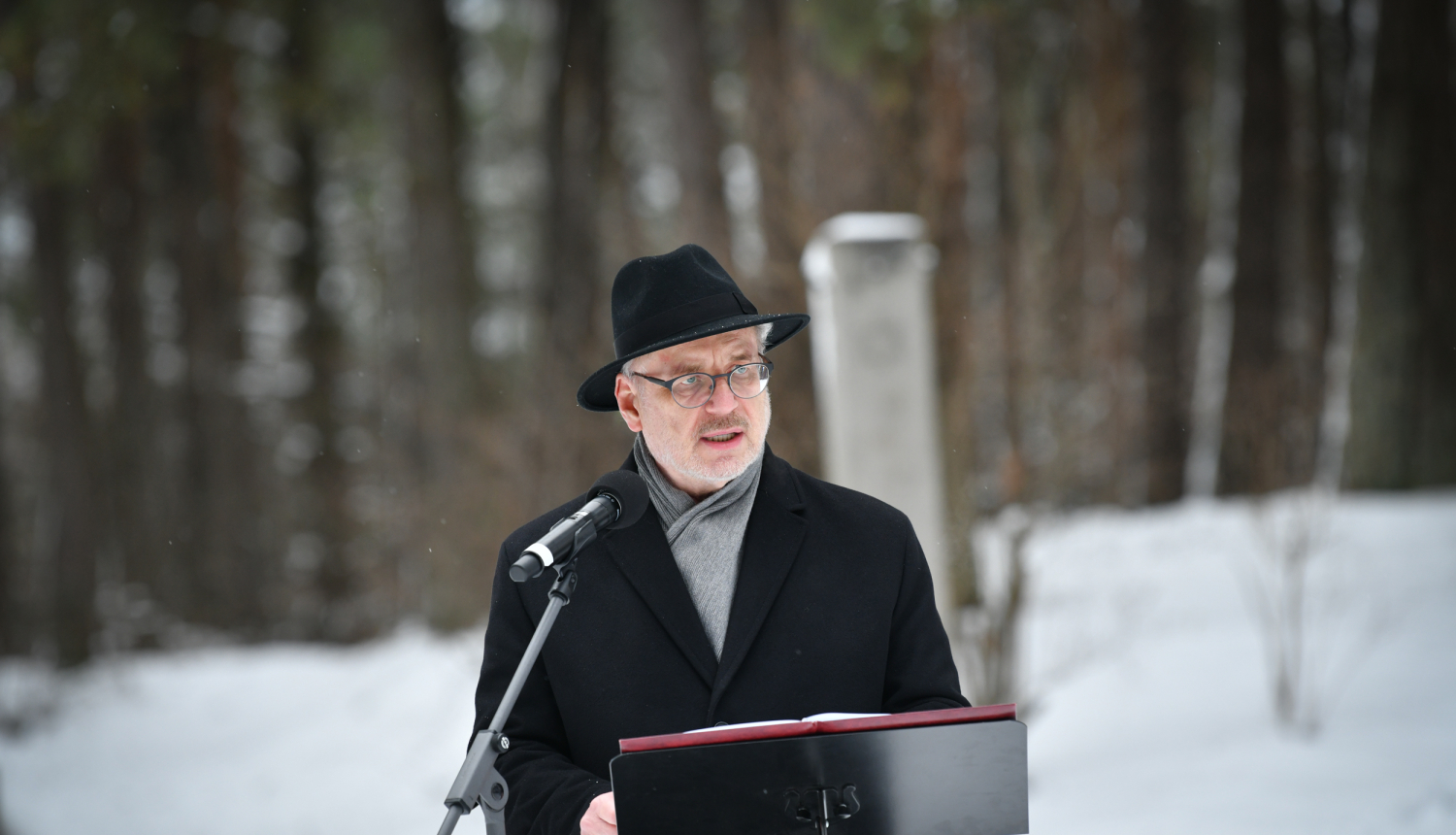Last century is riddled with some of the most dramatic events in the human history. Latvia has also had its fair share of past deep scars.
Today marks 80 years since tragic wave of holocaust swept over Latvia leaving plenty of misery behind. 80 years seems long enough for distant past memories to start to fade.
But the magnitude of this tragedy, enormous pain and human suffering that it brought Latvia means we will never forget these last-century events ingrained in our memory. We have the moral obligation to keep the memory alive. Holocaust, the destruction of Jewish people, is part of Latvia and the history of its people.
80 years to the day, on 30 November and 8 December 1941, Nazis, who had occupied Latvia, engineered a massacre at Rumbula, doorstep of Riga, killing 25,000 Jews. There were German Jews among them.
Latvia has consistently condemned crimes against humanity committed by occupation regimes and their collaborators.
And we also give lots of respect to those brave Latvians who showed what it really means to be human by saving their Jewish compatriots in spite of the horrendous tragedy.
One of our best historians, Marģers Vestermanis, has dedicated his life work to identifying and documenting those who rescued Jews in Latvia. He was a survivor himself who had lived through its horror to tell the tale that we just heard.
It is a little known facts nowadays that during the Second World War Latvian State had a special policy adopted shortly before the outbreak of the war. While most European and world governments refused to let Jews from Europe into their country, Latvia not only increased its immigration quotas but also took significant Jewish refugee population in.
About thirty-six hundred Jews from Germany and other countries under its occupation found shelter and hope of survival in Latvia between 1938 and 1940, or the occupation of Latvia.
Holocaust and these tragic chapters of Latvian history were a taboo for a long time, and very little was known about them in the society at large.
The fact that Jewish community barely persuaded the Soviet occupation regime to allow it erect a memorial stone saying ‘In memory of Nazi victims’ here is well-known.
The Holocaust Victims Memorial you see here now was built after restoration of Latvia’s independence. Holocaust is part of Latvian school curriculum, Rumbula massacre is subject of historic research and Museum of Occupation of Latvia and Museum Jews in Latvia has created a special display.
Unfortunately, last century ghosts have gone nowhere and continue to haunt us in 21st century as well. Intolerance, antisemitism, racial hate speech, aggressions and wars near and far are still today’s reality.
How long does the human memory last? Have memories of the World War II faded already? Do we not learn about them in school enough? Do we not talk about them enough? These questions are very relevant today, as much as one of the key concepts of Judaism, the ‘Tikkun ha-olam’ (Repairing the world), which bears special meaning on moments like this when we stand at the Rumbula Memorial.
Our deepest thoughts are with Latvia’s Jewish community and the whole Jewish nation today.
There is no figure or words to describe the losses suffered by Latvian State and people during the World War II when they lost most of its Jewish population.
We continue to mourn the Holocaust victims, including my family, and look back at the painful history of our state and nation starkly aware that the common future we are building together requires us to constantly bring back these memories stored in our collective consciousness. It is also a stark warning to those who believe otherwise, those who think we should forget what happened and start afresh. Nothing will ever be forgotten!
We bow our heads to victims of these egregious crimes and urge everyone to keep the memory of these events as the reminder to the world that nothing of this kind should ever happen again. That is why we need the collective memory. That is what it is meant to do.
Thank you!




